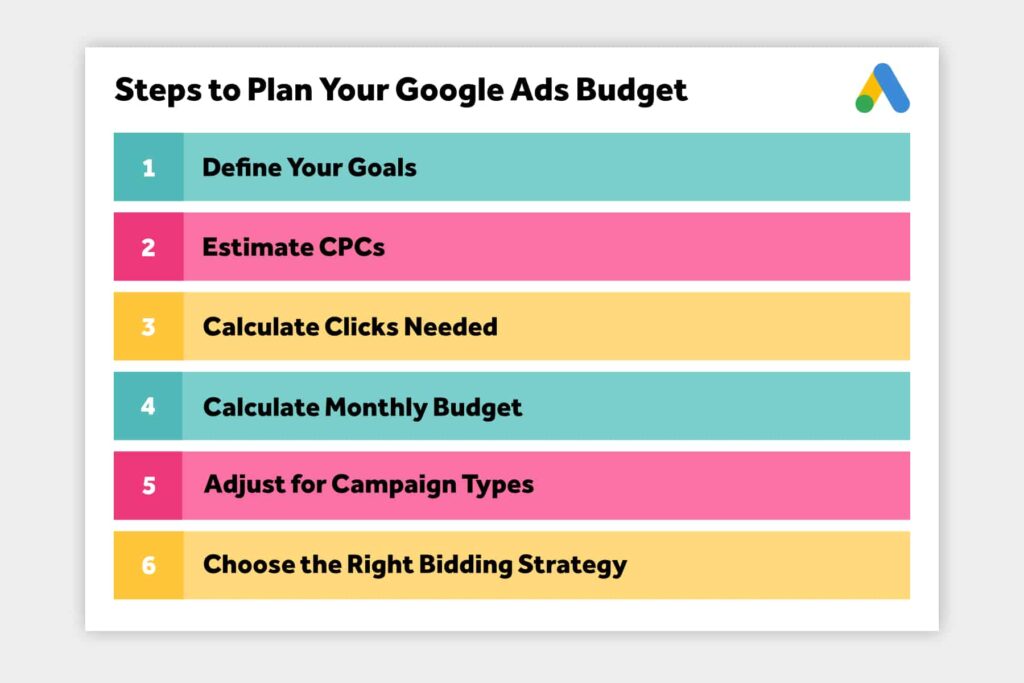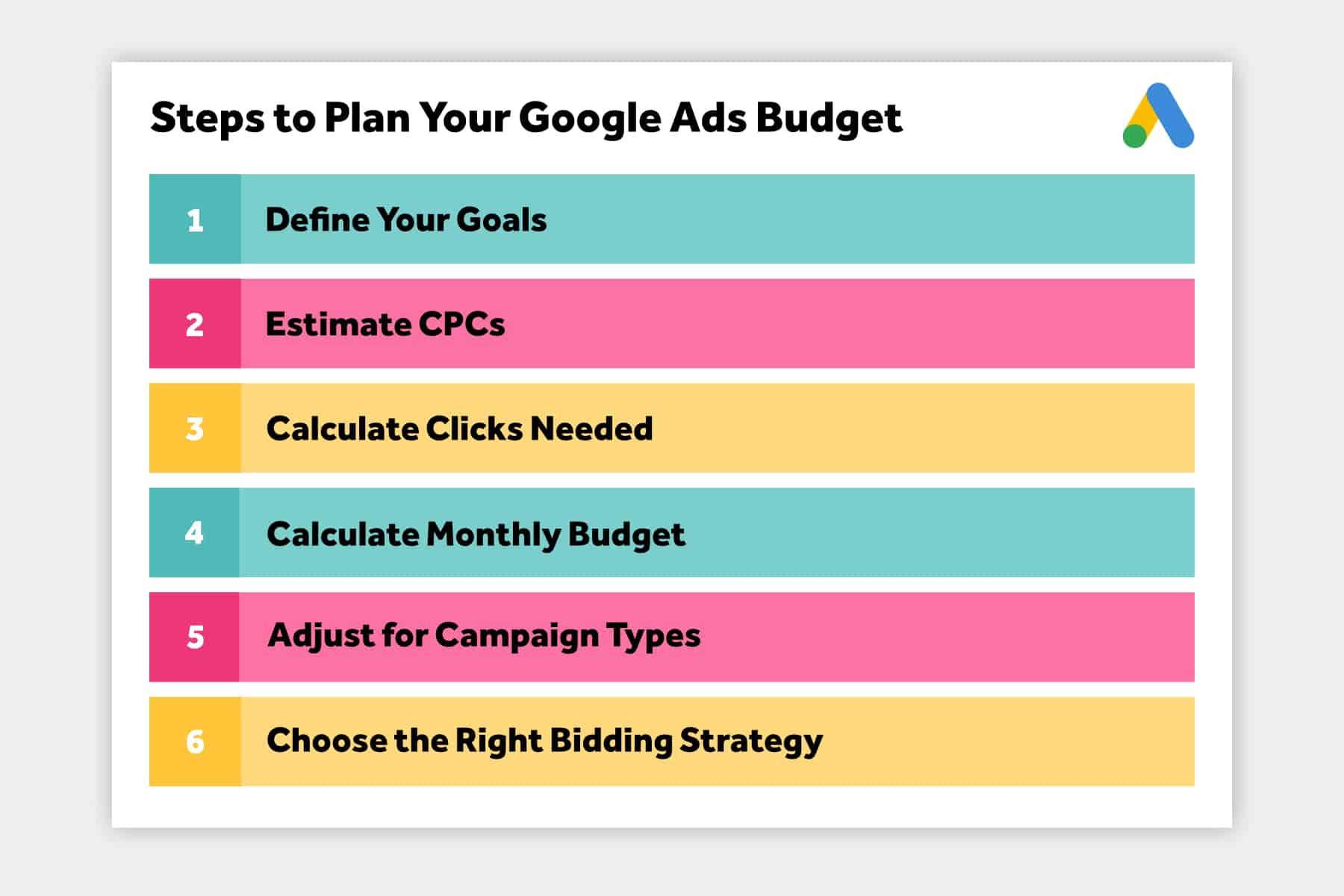
Mastering Your Google Advertising Budget: A Comprehensive Guide
In today’s digital landscape, a well-defined Google advertising budget is crucial for businesses aiming to expand their reach and drive conversions. Google Ads, formerly known as Google AdWords, offers a powerful platform to connect with potential customers actively searching for products or services like yours. However, simply launching a campaign without a clear understanding of how to allocate your Google advertising budget can lead to wasted resources and disappointing results. This guide provides a comprehensive overview of how to effectively manage your Google advertising budget, ensuring you maximize your return on investment (ROI) and achieve your marketing objectives.
Understanding the Fundamentals of Google Ads Budgeting
Before diving into specific strategies, it’s essential to grasp the core concepts of Google advertising budgets. Unlike traditional advertising methods, Google Ads operates on a pay-per-click (PPC) model. This means you only pay when someone clicks on your ad, offering a more targeted and cost-effective approach. However, this also necessitates careful budget management to avoid overspending or underspending.
Key Factors Influencing Your Google Ads Budget
Several factors influence the optimal Google advertising budget for your business:
- Industry Competition: Highly competitive industries typically require larger budgets to stand out and secure prominent ad positions.
- Target Audience: Reaching a broad audience will generally require a higher budget compared to targeting a niche market.
- Geographic Targeting: Targeting multiple geographic locations will increase your overall ad spend.
- Keyword Selection: The competitiveness and search volume of your chosen keywords will impact your cost-per-click (CPC).
- Campaign Goals: Whether you’re aiming for brand awareness, lead generation, or direct sales, your budget should align with your objectives.
Setting Your Initial Google Ads Budget
Determining your initial Google advertising budget can feel daunting, especially for newcomers. Here’s a step-by-step approach to guide you:
Step : Define Your Campaign Goals
Start by clearly defining what you want to achieve with your Google Ads campaigns. Are you aiming to increase website traffic, generate leads, or drive online sales? Establishing measurable goals is crucial for tracking your progress and evaluating the effectiveness of your budget. For example, a goal might be to increase website traffic by 20% within the next quarter.
Step : Research Your Keywords
Keyword research is the cornerstone of any successful Google Ads campaign. Use tools like Google Keyword Planner to identify relevant keywords with sufficient search volume and reasonable CPC. Consider both broad match and long-tail keywords to capture a wider range of potential customers. Long-tail keywords, while having lower search volume, often have higher conversion rates due to their specificity. [See also: Keyword Research Strategies for Google Ads]
Step : Estimate Your Cost-Per-Click (CPC)
Google Keyword Planner can also provide estimates for CPC for your chosen keywords. These estimates are not guarantees, but they offer a valuable starting point for calculating your potential ad spend. Remember that CPC can fluctuate based on competition, ad quality, and other factors.
Step : Calculate Your Potential Daily Budget
Once you have an estimated CPC, you can calculate your potential daily budget. For example, if your average CPC is $2 and you want to get 50 clicks per day, your daily budget would be $100. This is a simplified calculation, but it provides a framework for understanding how your budget translates into potential traffic.
Step : Factor in Conversion Rates
Ultimately, the success of your Google advertising budget hinges on your conversion rates. If you know your average conversion rate (e.g., the percentage of website visitors who make a purchase or submit a lead form), you can estimate the return on your ad spend. For example, if your conversion rate is 2% and your average order value is $50, you can calculate the revenue generated from each click. [See also: Optimizing Conversion Rates for Google Ads]
Strategies for Optimizing Your Google Ads Budget
Setting your initial budget is just the first step. Continuous monitoring and optimization are essential for maximizing your ROI. Here are some key strategies:
Implement a Bidding Strategy
Google Ads offers various bidding strategies, including manual CPC, automated bidding (e.g., Target CPA, Maximize Conversions), and smart bidding. Experiment with different strategies to find the one that best aligns with your campaign goals and budget. Automated bidding can be particularly effective for optimizing your budget in real-time, but it requires sufficient data to learn and perform effectively.
Refine Your Keyword Targeting
Regularly review your keyword performance and identify keywords that are not generating conversions. Consider pausing or removing underperforming keywords to redirect your budget towards more profitable terms. Also, explore adding negative keywords to prevent your ads from appearing for irrelevant searches. [See also: Advanced Keyword Targeting Techniques]
Optimize Your Ad Copy
Compelling ad copy is crucial for attracting clicks and improving your quality score. A higher quality score can lead to lower CPC and better ad positions. Test different ad variations to see which ones resonate best with your target audience. Focus on highlighting the unique benefits of your product or service and including a clear call to action.
Improve Your Landing Page Experience
Driving traffic to your website is only half the battle. Your landing page must be optimized for conversions. Ensure that your landing page is relevant to your ad copy, loads quickly, and provides a seamless user experience. A/B testing different landing page elements can help you identify areas for improvement.
Monitor Your Campaign Performance
Regularly monitor your Google Ads campaign performance using Google Ads reports and analytics. Pay attention to key metrics such as impressions, clicks, CPC, conversion rate, and cost per conversion. Use this data to identify trends, optimize your campaigns, and make informed decisions about your Google advertising budget.
Use Location Targeting
If you are a local business, then it is important to use location targeting. Location targeting will only show your ads to customers in a specific geographic location. This can help you to save money on your Google advertising budget by only showing your ads to people who are likely to be interested in your products or services.
Use Remarketing
Remarketing is a great way to reach people who have already visited your website. Remarketing allows you to show ads to people who have previously interacted with your website. This can help you to increase your conversion rate and get more value out of your Google advertising budget.
Common Mistakes to Avoid with Your Google Ads Budget
Even with careful planning, it’s easy to fall into common budgeting pitfalls. Here are some mistakes to avoid:
- Setting an unrealistic budget: Don’t underestimate the cost of advertising in your industry. Be prepared to invest a sufficient amount to see meaningful results.
- Ignoring keyword research: Neglecting keyword research can lead to targeting irrelevant keywords and wasting your budget.
- Failing to track conversions: Without tracking conversions, you won’t be able to accurately assess the effectiveness of your campaigns.
- Ignoring mobile optimization: Mobile devices account for a significant portion of online traffic. Ensure that your ads and landing pages are optimized for mobile users.
- “Set it and forget it” mentality: Google Ads campaigns require ongoing monitoring and optimization. Don’t simply set your budget and assume it will work without active management.
Advanced Budgeting Techniques
Once you’ve mastered the fundamentals, you can explore more advanced budgeting techniques:
Budget Pacing
Budget pacing refers to how quickly your daily budget is spent. Google Ads aims to spend your daily budget evenly throughout the day. However, in some cases, your budget might be exhausted early in the day, limiting your exposure. You can adjust your bidding strategy and targeting to influence your budget pacing.
Shared Budgets
Shared budgets allow you to allocate a single budget across multiple campaigns. This can be useful for managing your overall ad spend and ensuring that all your campaigns have sufficient funding.
Seasonality Adjustments
If your business experiences seasonal fluctuations, you may need to adjust your Google advertising budget accordingly. Increase your budget during peak seasons and reduce it during slower periods.
Conclusion
Mastering your Google advertising budget requires a combination of strategic planning, continuous monitoring, and ongoing optimization. By understanding the fundamentals of Google Ads budgeting, setting realistic goals, and implementing effective optimization strategies, you can maximize your ROI and achieve your marketing objectives. Remember that a successful Google advertising budget is not a static number but a dynamic element that should be adjusted based on performance and market conditions. By avoiding common mistakes and exploring advanced techniques, you can ensure that your Google advertising budget works effectively to drive business growth. Understanding the intricacies of a Google advertising budget is paramount for success in the competitive digital marketing arena. A carefully planned and executed Google advertising budget can make all the difference. The power of a well-managed Google advertising budget cannot be overstated in today’s digital climate. Remember to always keep an eye on your Google advertising budget and make adjustments as needed. Effective management of your Google advertising budget is key to seeing a positive return on your investment. Don’t forget that your Google advertising budget is a tool, and like any tool, it needs to be used correctly to be effective. Managing your Google advertising budget is an ongoing process, not a one-time event. A smart Google advertising budget strategy is crucial for achieving your business goals. Finally, always remember that your Google advertising budget should be aligned with your overall marketing strategy.

